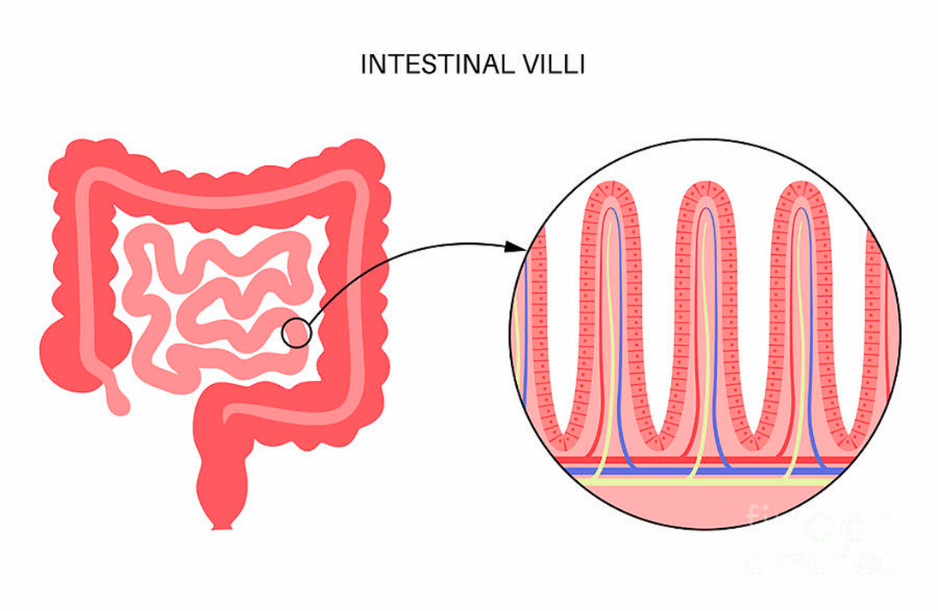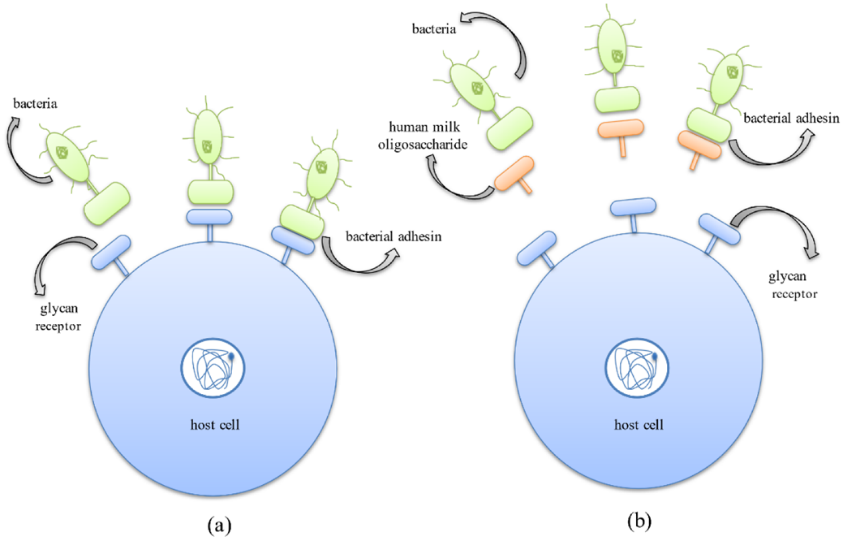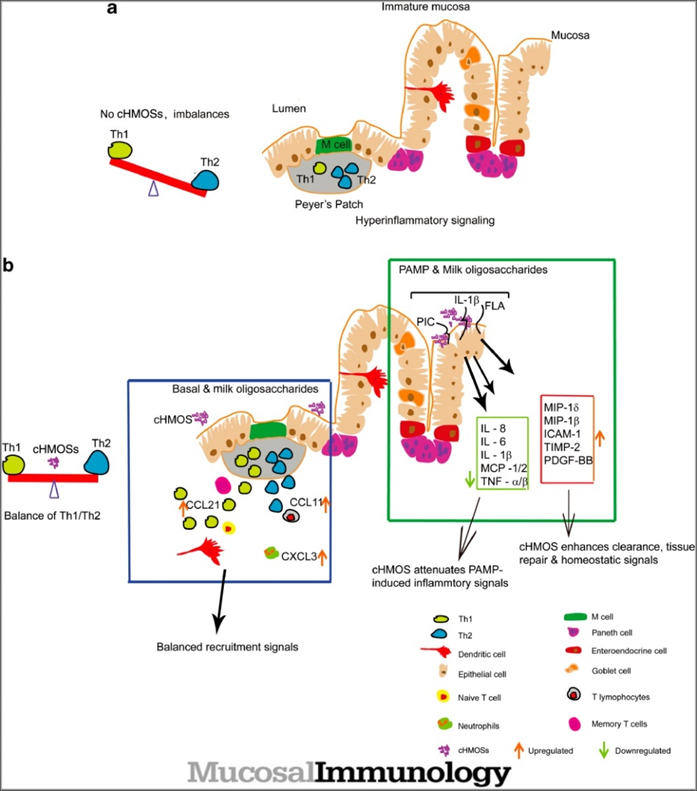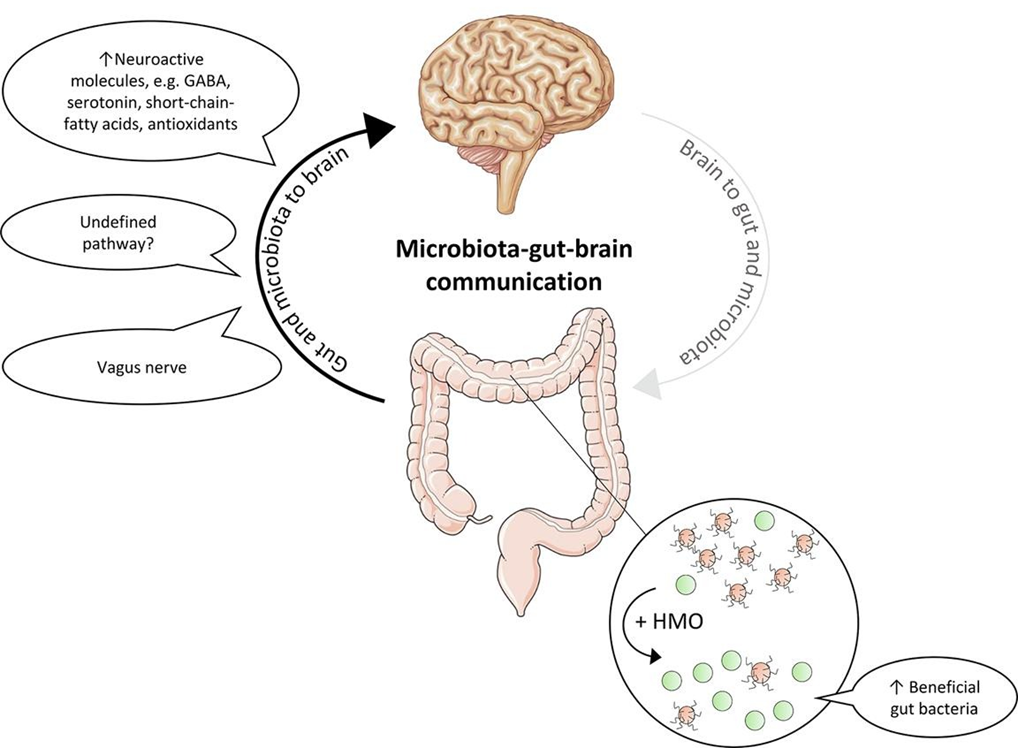The Critical First 1,000 Days: Nutrition's Role in Early Development
The early 1000 days of life, spanning from conception to a child's second birthday, represent a critical window for growth and development. This period is characterized by rapid physical and cognitive growth. It has been reported that a child's brain forms 1,000 new neural connections every second throughout this time [1]. This remarkable growth underscores the profound impact that nutrition has during these formative years; the quality of nutrition received can significantly influence cognitive abilities, emotional regulation, and overall health. Conversely, insufficient nutrition can lead to developmental delays and long-term health issues.
To ensure that infants receive comprehensive and balanced nutritional support when breastfeeding is insufficient or not possible, the infant formula industry has been trying to mimic the compositional and nutritional characteristics of breast milk in multiple dimensions. This endeavor is driven by the recognition that breast milk is the optimal source of nutrition for infants, providing a complex array of nutrients that are crucial for healthy growth and development.
Concurrently, according to data from iiMedia Research, there is a significant consumer demand within the market, with approximately 76.1% of consumers expressing the expectation that infant formula products should go beyond the provision of existing essential nutrients. Consumers are increasingly seeking formulas that enhance their range of advanced nutritional components, thereby achieving more comprehensive nutritional supplementation for infants. In this context, Human Milk Oligosaccharides (HMOs) have emerged as a focal point of interest.
HMOs are the third most abundant solid constituents in breast milk, following lactose and fat, and they play a pivotal role in early life nutrition. These complex carbohydrates are instrumental in promoting the development of a healthy gut microbiome, supporting immune function, and potentially offering protection against various infections and diseases during infancy. As such, the inclusion of HMOs in infant formula represents a significant advancement in the quest to approximate the nutritional profile of breast milk and meet the evolving expectations of consumers for enhanced nutritional offerings.
The Role of Human Milk Oligosaccharides (HMOs)
Human Milk Oligosaccharides (HMOs) offer a range of beneficial effects on the infant's brain development, immune system, gut microbiota, and overall growth [2]. Cabio NeoHMOs® is a collection of the six most abundant HMOs in breast milk, including 2'-Fucosyllactose (2'-FL), 3-Fucosyllactose (3-FL), 6'-Sialyllactose (6'-SL), 3'-Sialyllactose (3'-SL), Lacto-N-tetraose (LNT) and Lacto-N-neotetraose (LNnT). These HMO ingredients have received approval for addition to infant formulas and have demonstrated in clinical trials their ability to enhance infant immunity and promote gut health and neurodevelopment.
The Importance of NeoHMOs® for Gut Health
Prebiotic Effects
NeoHMOs (2’-FL, 3-FL, 6’-SL, 3’-SL, LNT, and LNnT) are indigestible by infants, allowing them to reach the colon where they function as prebiotics. They selectively stimulate the growth of beneficial bacteria (Figure 1), particularly Bifidobacteria, which are essential for maintaining a balanced gut microbiota [3]. This selective stimulation not only supports beneficial bacteria but also helps suppress harmful bacteria, such as group B Streptococcus [4], fostering a healthy microbial environment.

Production of Short-Chain Fatty Acids (SCFAs)
The fermentation of HMOs by gut bacteria results in the production of Short-Chain Fatty Acids (SCFAs) like acetate, propionate, and butyrate [5]. These metabolites are crucial for gut health as they provide energy to colon cells, enhance the integrity of the gut barrier, and exert anti-inflammatory effects [6].
Enhancing Nutrient Absorption and Gut Barrier Integrity
HMOs promote the differentiation and maturation of intestinal epithelial cells, increasing the length and surface area of intestinal villi (Figure 2) [7]. This process may enhance nutrient absorption and supports the physical development of infants.

The Importance of NeoHMOs® for Immunity
Pathogen Decoy Effects
HMOs can mimic the glycan receptors found on the surface of intestinal epithelial cells (Figure 3) [8]. Pathogens, such as bacteria and viruses, typically adhere to these receptors to initiate infection, thus reducing the risk of infection. This mechanism has been shown to be effective against various pathogens, including norovirus and rotavirus, helping to lower viral loads and protect against gastrointestinal infections [9].

Modulation of Immune Response
Additionally, HMOs interact directly with immune cells, influencing their activity and promoting a balanced immune response. They can decrease the secretion of pro-inflammatory cytokines, such as IL-8 and IL-1β, which are associated with inflammation and allergic reactions (Figure 4) [10]. On the other hand, HMOs can enhance the activity of various immune cells, including dendritic cells [11], macrophages [12], and T cells [13].

The Importance of NeoHMOs® for Cognitive Function
Better Gut, Better Brain
A healthy gut microbiome is essential for cognitive development, as it produces metabolites like SCFAs that influence brain function through microbiota-gut-brain communication [14]. The positive impact of HMOs on gut microbiota has already been highlighted above.

Source of Sialic Acid
Sialic acid, particularly N-acetylneuraminic acid, is abundant in sialylated HMOs like 3’-SL and 6’-SL. This molecule is crucial for forming gangliosides, which are vital for synaptic connections and myelination in the brain [15]. Sialylated HMOs have been demonstrated to have improved cognitive function in in vivo models [16].
Modulation of Neurodevelopmental Pathways
Research suggests that HMOs can influence gene expression related to neurodevelopment. For instance, 6’-SL has been shown to upregulate genes involved in neuronal patterning and synaptic plasticity [17], potentially enhancing learning, memory, and executive functions during critical periods of brain maturation.
Clinical Validation of HMO Benefits
The health benefits of HMOs are well-documented and validated in clinical studies. Research indicates that infants receiving formulas enriched with HMOs exhibit microbiota profiles and bowel movement patterns more closely resembling those of breastfed infants [18, 19]. Additionally, studies have reported lower levels of inflammatory cytokines [20] and fewer gastrointestinal [20] and respiratory infections [21] among infants fed HMO-enriched formulas. Moreover, correlations have been identified between specific HMOs in breast milk and improved cognitive outcomes, including enhanced learning, language skills, and motor abilities in infants [22-24].
CABIO unveils NeoHMOs® 2'fucosyllactose for infant formula sector.
Since 2014, HMOs have been approved by regulatory bodies in the United States and Europe. By 2023, two specific HMOs, 2'-FL and LNnT, received official approval in China as nutritional fortifiers.
CABIO's NeoHMOs® are approved for use in China and comply with all European Union standards. Through innovative technologies, CABIO enhances the taste and flowability of 2'-FL powder, facilitating its integration into various products. By utilizing renewable raw materials for large-scale production, CABIO minimizes land and natural resource usage, offering sustainable and healthy nutritional solutions globally.
CABIO's NeoHMO® 2'fucosyllactose delivering premium nutrition and extends maternal love protection.
Reference
1. Likhar, A. and M.S. Patil, Importance of maternal nutrition in the first 1,000 days of life and its effects on child development: a narrative review. Cureus, 2022. 14(10).
2. Bode, L., Human milk oligosaccharides: every baby needs a sugar mama. Glycobiology, 2012. 22(9): p. 1147-1162.
3. Yu, Z.-T., C. Chen, and D.S. Newburg, Utilization of major fucosylated and sialylated human milk oligosaccharides by isolated human gut microbes. Glycobiology, 2013. 23(11): p. 1281-1292.
4. Lin, A.E., et al., Human milk oligosaccharides inhibit growth of group B Streptococcus. Journal of Biological Chemistry, 2017. 292(27): p. 11243-11249.
5. De Bruyn, F., et al., Combining Bifidobacterium longum subsp. infantis and human milk oligosaccharides synergistically increases short chain fatty acid production ex vivo. Communications Biology, 2024. 7(1): p. 943.
6. Tan, J., et al., The role of short-chain fatty acids in health and disease. Advances in immunology, 2014. 121: p. 91-119.
7. Azagra-Boronat, I., et al., Immunomodulatory and prebiotic effects of 2′-fucosyllactose in suckling rats. Frontiers in immunology, 2019. 10: p. 1773.
8. Verkhnyatskaya, S.A., et al., Digestion, fermentation, and pathogen anti-adhesive properties of the hMO-mimic di-fucosyl-β-cyclodextrin. Food & Function, 2021. 12(11): p. 5018-5026.
9. Walsh, C., et al., Human milk oligosaccharides: Shaping the infant gut microbiota and supporting health. Journal of Functional Foods, 2020. 72: p. 104074.
10. He, Y., et al., Human colostrum oligosaccharides modulate major immunologic pathways of immature human intestine. Mucosal immunology, 2014. 7(6): p. 1326-1339.
11. Xiao, L., et al., Human milk oligosaccharides promote immune tolerance via direct interactions with human dendritic cells. European journal of immunology, 2019. 49(7): p. 1001-1014.
12. Zhang, W., et al., In vitro immunomodulatory effects of human milk oligosaccharides on murine macrophage RAW264. 7 cells. Carbohydrate Polymers, 2019. 207: p. 230-238.
13. Rosa, F., et al., Human milk oligosaccharides impact cellular and inflammatory gene expression and immune response. Frontiers in Immunology, 2022. 13: p. 907529.
14. Al-Khafaji, A.H., et al., The potential of human milk oligosaccharides to impact the microbiota-gut-brain axis through modulation of the gut microbiota. Journal of Functional Foods, 2020. 74: p. 104176.
15. Liu, F., et al., Sialic acid, the secret gift for the brain. Critical Reviews in Food Science and Nutrition, 2023. 63(29): p. 9875-9894.
16. Docq, S., et al., The protective and long-lasting effects of human milk oligosaccharides on cognition in mammals. Nutrients, 2020. 12(11): p. 3572.
17. Hauser, J., et al., Sialylated human milk oligosaccharides program cognitive development through a non-genomic transmission mode. Molecular Psychiatry, 2021. 26(7): p. 2854-2871.
18. Parschat, K., et al., Clinical evaluation of 16-week supplementation with 5HMO-mix in healthy-term human infants to determine tolerability, safety, and effect on growth. Nutrients, 2021. 13(8): p. 2871.
19. Lasekan, J., et al., Growth and gastrointestinal tolerance in healthy term infants fed milk-based infant formula supplemented with five human milk oligosaccharides (HMOs): A randomized multicenter trial. Nutrients, 2022. 14(13): p. 2625.
20. Goehring, K.C., et al., Similar to those who are breastfed, infants fed a formula containing 2′-fucosyllactose have lower inflammatory cytokines in a randomized controlled trial. The Journal of nutrition, 2016. 146(12): p. 2559-2566.
21. Stepans, M.B.F., et al., Early consumption of human milk oligosaccharides is inversely related to subsequent risk of respiratory and enteric disease in infants. Breastfeeding Medicine, 2006. 1(4): p. 207-215.
22. Cho, S., et al., Human milk 3’-Sialyllactose is positively associated with language development during infancy. The American Journal of Clinical Nutrition, 2021. 114(2): p. 588-597.
23. Oliveros, E., et al., Human milk levels of 2-fucosyllactose and 6-sialyllactose are positively associated with infant neurodevelopment and are not impacted by maternal BMI or diabetic status. J Nutr Food Sci, 2021. 4(1): p. 100024.
24. Berger, P.K., et al., Human milk oligosaccharide 2’-fucosyllactose links feedings at 1 month to cognitive development at 24 months in infants of normal and overweight mothers. PloS one, 2020. 15(2): p. e0228323.









